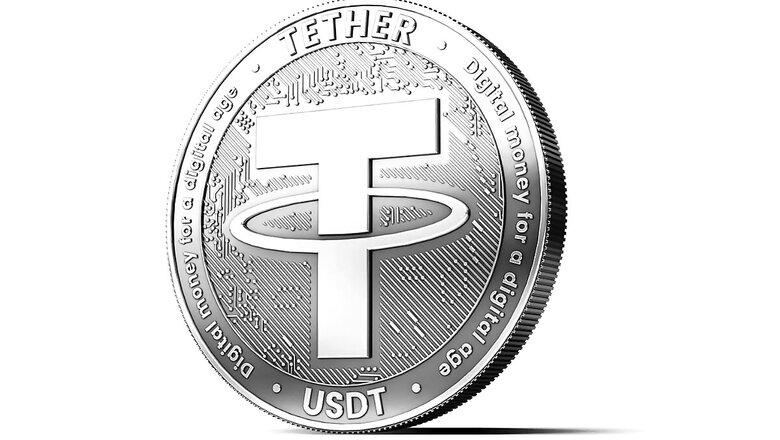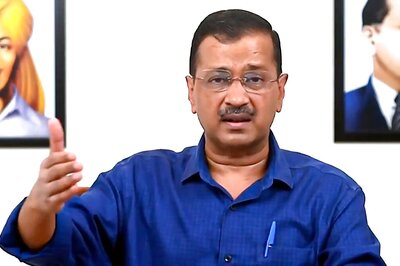Buying The Dip Or Invest For The Future? How To Put Your Money In Bitcoin And Crypto Coins, In India

views
There are always two sides to the crypto coin. One suggests that if the prices are sliding, you buy the dip because things will get better again. The other suggests cut your losses and get out. If you have been following the cryptocurrency markets off late, you’d have noticed what can only be described as carnage. Bitcoin and cryptocurrency prices have been fallen significantly, partly spooked by what Elon Musk keeps tweeting and China’s new guidelines that bar financial institutions and payment companies from trading in cryptocurrencies—while individuals aren’t within the purview of these new rules. In the midst of all this, memes galore on social media. Nevertheless, serious investors or those with some ability to absorb risks will be looking at this as a blip on the horizon that would likely see crypto prices spike again. And there are apps that let you invest easily.
If you want to take the plunge and invest in cryptocurrencies including Bitcoin, Ethereum, Litecoin, Cardano, Dogecoin, Shiba Inu and Polygon, in India you have apps that allow you to trade very easily in cryptocurrencies. Mind you, we are absolutely not giving any investment advice. The popular apps are CoinSwitch Kuber, CoinDCX, ZebPay and WazirX. CoinDCX specifically has two apps, the second being a simpler one for starters called CoinDCX Go which lists select crypto coins for investing in. These apps are available for Android phones as well as the Apple iPhone, the latter two platforms also let you trade from their web versions. In fact, the CoinDCX app lets you set up dual authentication with unique OTPs that are sent on your mobile number and email, to further protect against any unauthorized entry into your crypto trading app. All apps have two factor authentication enabled which simply makes your account more secure. In my experience, I noticed that the CoinSwitch Kuber app also sends notifications on email for every time you log in, from any phone. CoinDCX also sends messages informing you of the approximate location your account has been logged in from, and if it isn’t you, that can set the alarm bells ringing for corrective action. Interesting observation, none of the three apps are tapping into face recognition feature on phones, and still require you to punch in PINs.
The process of setting up your account remains pretty standard across all apps, also dictated by the RBI guidelines for any trading and money transfer related apps. Before you can add money to the wallet and start trading, you’ll need to complete the KYC, or know your customer, process. This means sharing your PAN card and Aadhaar card numbers which will be verified by the app using the authentication systems. This can take anywhere between 5 minutes to 24 hours, in my experience. CoinSwitch was the quickest to complete my KYC, CoinDCX took around 24 hours and WazirX took a bit longer. This, however, may be a different experience for you, with a lot of factors including the number of simultaneous signups that need to be processed dictating the time taken. To factor in for the time taken in these cases, CoinDCX and WazirX allow you, with some caps and limits, to add money into the crypto app wallet and start buying digital currency. In my experience, CoinSwitch Kuber required a complete KYC to be completed before any trading could be done. What you need to watch out for is that not all cryptocurrencies will be available for trading, that is buying and selling on all these platforms. For instance, at the time of writing this, Shiba Inu crypto coin isn’t listed on CoinSwitch Kuber but can be traded on CoinDCX or WazirX. You will notice these finer differences from time to time, and a lot of this also depends on which crypto exchanges these apps are plugging in to. Over time, expect a very level playing field with all coins listed across all options.
Now on to how you add money to the wallets on these apps and start trading. And this is the sore point, also because of the glaring lack of any regulation for cryptocurrency trading and banks proving to be unwilling to support or be seen working with cryptocurrency exchanges in India. That is the reason why your options for adding money to the wallets for trading, are very limited. The option to use UPI, or unified payments interface, remains unavailable across all three apps. You are basically limited to transferring money from your bank account to the app’s bank account, and then that money is added to your wallet to buy cryptocurrency. There is no option to use credit or debit card either, and mobile wallets as payment methods also don’t seem to have any presence on these platforms—the only exception to the rule being CoinDCX that supports the MobiKwik mobile wallet as an option to add money—and in my experience, this method proved to be seamless and instant. At this time, none of the three apps support popular digital payment wallets including Paytm, PhonePe or Google Pay.
A few days ago, WazirX sent a communication to all users in which they said that bank transfers as an option would no longer be available to them because their Paytm Bank account would no longer be receiving bank transfers for adding money to the WazirX wallet. Right now, your option is the WazirX P2P method to trade in cryptocurrency, something we have detailed. This method is a bit of a hit and miss depending on whether there is someone else ready to do a trade with you at that time or not. Also, I have often noticed on CoinSwitch that bank transfers are often unavailable, something the app clearly displays as a banner on the home screen itself, citing issues with their bank account. CoinSwitch also uses a Paytm bank account. Over the past couple of days, ZebPay and CoinSwitch Kuber have also reported limited or end of support from Paytm Bank for their accounts.
We are in the midst of a situation where banks are showing unwillingness to support cryptocurrency exchanges in India. The National Payments Corporation of India, which runs the UPI real-time payments system, has refused to ban cryptocurrency transactions in India. Instead, they have asked banks to make their own guidelines with regards to transactions that involve cryptocurrencies. The Reserve Bank of India (RBI) has not issued any guidelines since the Supreme Court shot down its 2018 regulation banning cryptocurrencies in India. Earlier this year, Finance Minister Nirmala Sitharaman clarified that, “There will be a very calibrated approach to be taken on crypto” and insisted that there will be a “window available for all kinds of experiments”, something that is seen as a positive for the cryptocurrency space in India. According to numbers by global crypto exchange Paxful, as of December 2020, India is the second largest Bitcoin market in Asia. And the sixth biggest market in the world, behind USA, Nigeria, China, Canada and UK.
Read all the Latest News, Breaking News and Coronavirus News here. Follow us on Facebook, Twitter and Telegram.




















Comments
0 comment